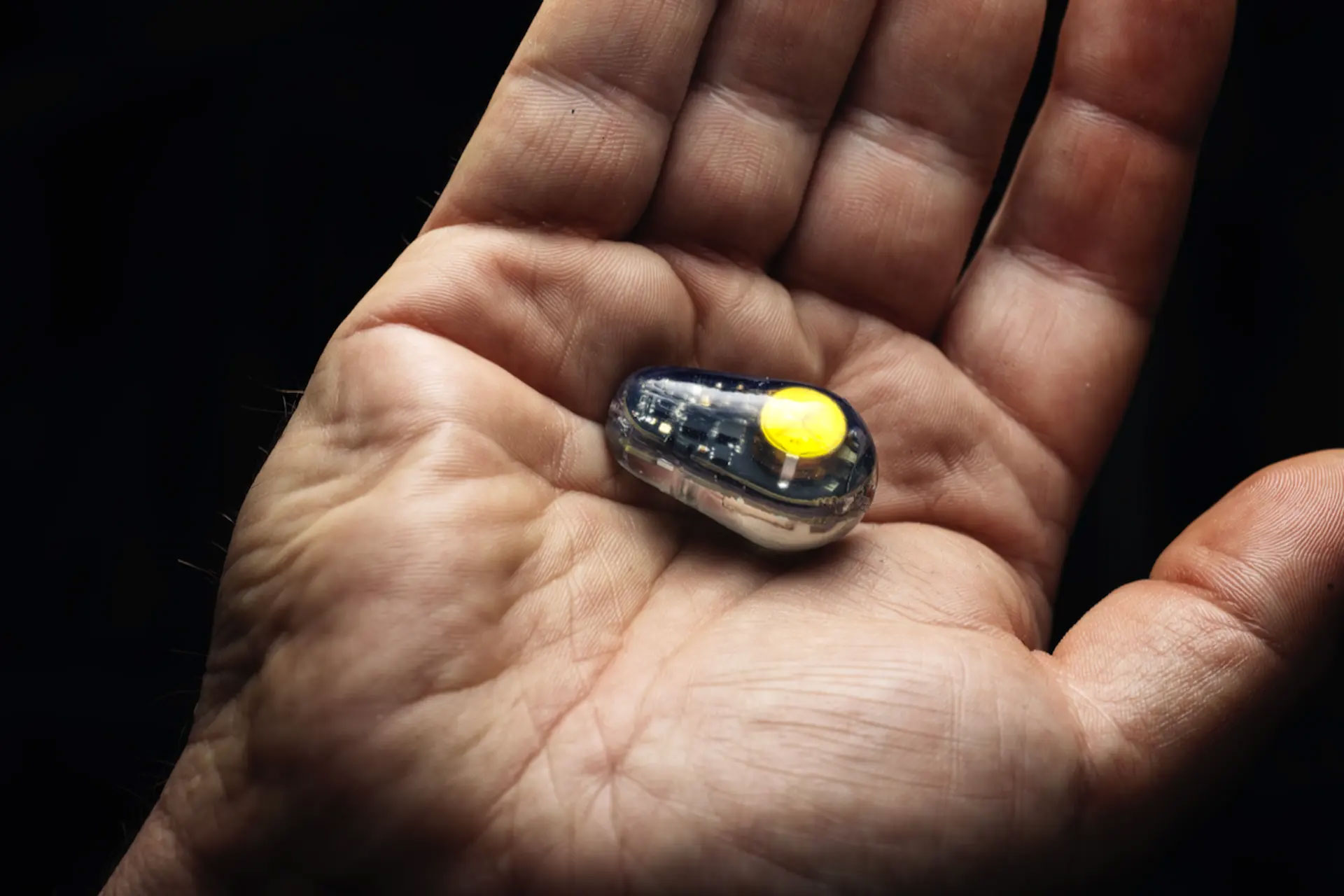What if every time you caught a fish on a lure, an app on your phone would tell you exactly what depth that lure was running at when it got struck, the amount of sunlight at that depth, and the water temperature where that fish was holding? It will also tell you exactly how far you casted and the speed at which that lure was moving when it tripped the trigger of that bass or walleye or striper. Would you find this information useful? Before you answer, think about that seriously for a second. How much of that data will help you be more successful with the very next cast? Let’s say you log this data for three weeks. How much will it really help you during week four on the same body of water?
My answer is very little. In fact, I’d go as far as to say that information is largely useless, or at minimum, not useful enough to deal with rigging an expensive tech device onto my line or using my phone to tell me what simple angler intuition already covers. But that’s not stopping a Swedish angler from trying to secure funds for the mass production of just such a device. In the current state of angling where technology is creating divisions as well as bringing in gobs of cash, however, I’m not surprised that he’s trying to strike while the iron is hot.
According to the story on Newatlas.com, Christer Chytraéus, inventor of the “Probe”, is asking for a pledge of $113 Kickstarter contributions to secure one of the devices in round one of production. If the product goes into full mass production, you’ll be able to score one for $162. The device—which measures a mere 1.3 inches and weighs only 0.2 ounces—is rigged on your mainline ahead of your leader. You can tie any lure you want to the end of that leader and the device will work.
Tech Wars
Unless you live under a rock, forward-facing sonar is on your radar to some degree. This technology allows anglers to find fish faster than ever before and watch how they react to lures and baits in real-time on a screen. And it’s creating controversy from the professional bass fishing world to the ice fishing world. Scroll through internet forums and social media and you’ll quickly notice there are camps of anglers both for and against this technology, but no matter which side you’re on, one thing can’t be denied—it’s highly effective at helping people catch more fish. It’s also revolutionary, and unlike the countless other techy fishing gizmos that have come and gone over the years, this one’s likely here to stay. Then you have the Probe, which does a whole lot, but will any of it really help you catch more fish?
Per the story, the Probe starts gathering cast length, water depth, temperate, and light penetration data as soon as it splashes down. When a fish strikes, the jerk triggers the device to log the exact depth of the hit as well as lure speed. No one—not even Chytraéus—has figured out how to make all this data transmit to your phone in real time, because Bluetooth simply doesn’t work well underwater. But as soon as the Probe comes out of the water, it sends all the data to the app. Neat, right? But here’s why nobody really needs this.
Mixed Signals
History has shown that anglers get gun shy about attaching anything expensive to their lines that they fear losing. Hell, even high-end, custom lures can qualify. A great example would be the Aqua-Vu Strike Vu camera. I know at least a dozen people who bought them, but would only use them in scenarios where they were confident they wouldn’t lose them (in other words, not around fishy structure or when anything big or with teeth was likely to hit). More importantly, what people learned was that to use these cameras they had to sacrifice proper presentation.
They’d be rigging with heavy mono or steel leader for walleyes and smallmouths simply because they didn’t want to lose the device. While I give Chytraéus credit for making the Probe so small and light, the fact remains that to use it I need to have unnecessary extras on my line and worry about losing the $162 gadget while fishing.
A Confidence Game
Where I can see the Probe being useful (maybe) would be in a deep-water commercial hook-and-line operation, say cod or sablefish, as examples. Day in and day out, you’re fishing the same areas, dropping heavy lures straight down sometimes in 1,000 feet or more. Over time, the collected data might create a nice seasonal map of where to fish and what to drop based on the weather and so on.
However, I don’t need my phone to tell me how fast I was reeling a crankbait on a lake when the bass struck because I was the one reeling and holding the rod when it happened. Logic would dictate, especially when dealing with schooling fish, that you’d approximately match your cast length, sink time, and retrieve speed to the presentation that just caught the fish. Even if the Probe tells me I got hit at a certain speed and depth, fish move…constantly. It doesn’t mean they’re all in one spot. I think that devices like this detract from and muddy up the things most anglers just naturally learn by doing, remembering, and building upon over time. Getting better through trial and error is what many of us love about fishing. That’s all part of the fun.
The Smart Rod Sensor is a precursor to the Probe. It clips to any rod and records data like the number of casts you made. Every time you hook up, a quick button push logs information like location, date, and weather conditions. This, in many ways, is more useful than the Probe, though I’ve never met an angler with a Smart Rod Sensor clipped to their stick. If you really break it down, what the Smart Rod Sensor and Probe are really for is creating a fishing log over time. The irony is that many seasoned anglers will tell you nothing is more important than log keeping. I know surfcasters and pro bass anglers who have been doing it for years, but those devoted to the craft still put pen to paper.
These modern devices seem like little more than gimmicks, and while the idea of logging data is nice, the reality is most of us fish when we can. We squeeze it in around daily life. We don’t have the luxury of being out there based on the perfect conditions mapped out by our years of logs so when we do hit the lake or river, we’re not very concerned about the light penetration at 30 feet. We just grab our confidence lure and start casting.
Read the full article here




